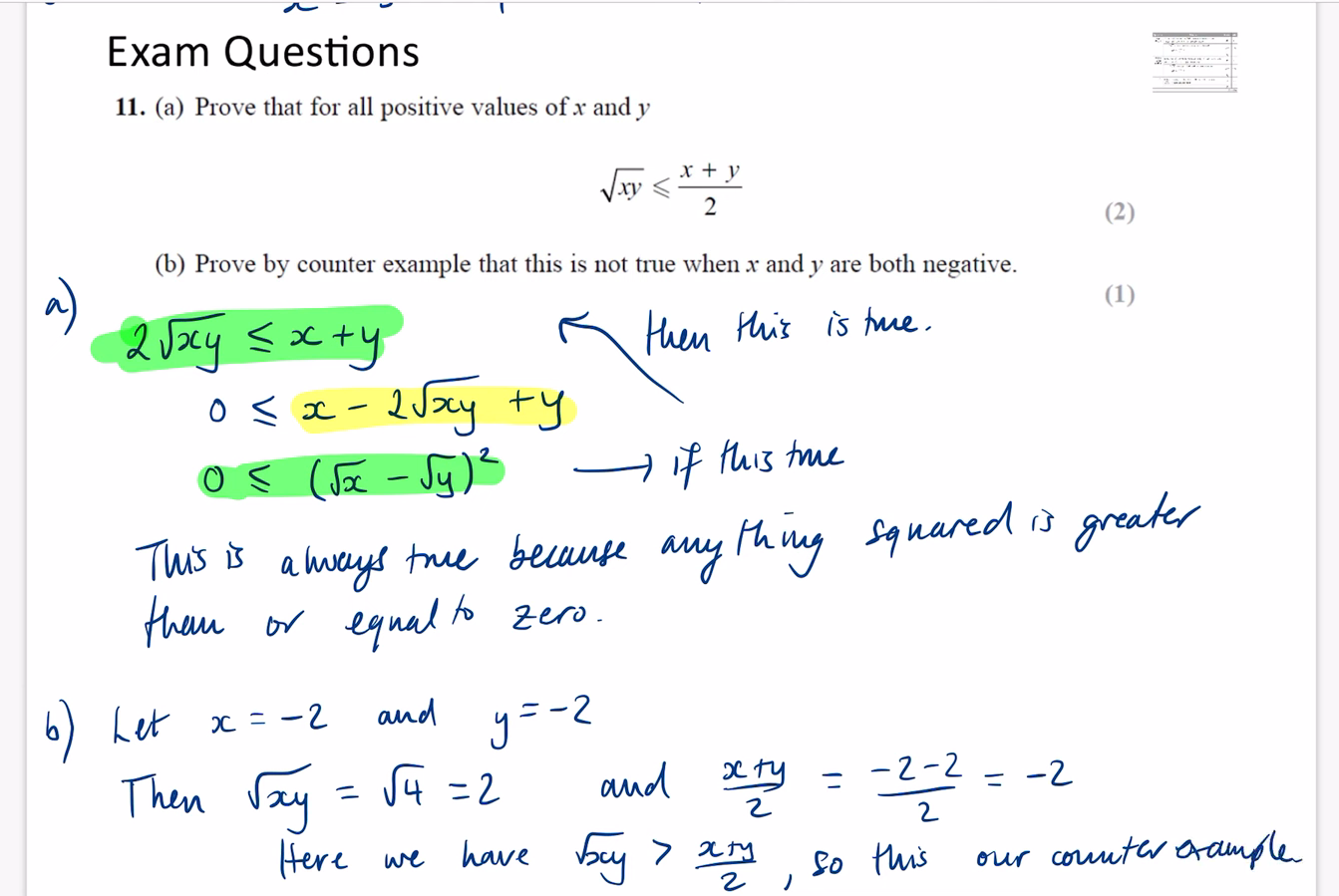y12 proofs maths
1/11
There's no tags or description
Looks like no tags are added yet.
Name | Mastery | Learn | Test | Matching | Spaced |
|---|
No study sessions yet.
12 Terms
what are the 2 types of proof in yr 12 maths?
deduction
exhaustion
what do u use / do for proof by deduction
its the algebraic one, where:
even = 2n
odd = 2n+1
in proof by deduction, what do u set even = to (consectives?), and what do u set odd = to(consecutives?)?
even = 2n, 2n+2, 2n+4 etc…
odd = 2n+1, 2n+3, 2n+5 etc……
what is the final step if doing deduction, and it asks to prove that is a multiple?
factor out what the scale factor is

using the example of 6, what must it mean for an “equation” to be divisible by the number (in this instance?)
divisible by 6 means divisible by 2 and divisible by 3
from this we can say that for any of this type of question, if it is supposed to be divisible by a number, it must also be divisible by the factors that multiply to get this number
if i say to prove that an “equation” is divisible by 8, what am I also saying?
that it is thus also divisible by 4 and divisible by 2
for 3 consecutive numbers, how can u prove that is divisible by 2, and divisible by 3?
divisible by 2 because it in 3 consecutive numbers there will always be at least 1 even integer (max even can be 2)
divisible by 3 because in 3 consecutive numbers, there will always be 1 ( and only 1) number which is a multiple of 3
what do u have to do for proof by exhaustion

when it says to prove that the set of numbers or the “equation” is a multiple of an odd number (e.g 5), but the usual way will only result in even/not help, what do u do
let n = the multiple (e.g 5) k
and for the other (e.g 1 more than a multiple of 5): let n = 5k+1
what do u have to do to prove the “equation” is positive for all values?
complete the square
when doing any questions which asks you to say if sometimes true, always true, or never true what do u do
start with sometimes true, by making the phrase they suggest into an equation/inequality
solve this, and then u can say is sometimes true
(u can also just use examples to answer)
do this question
